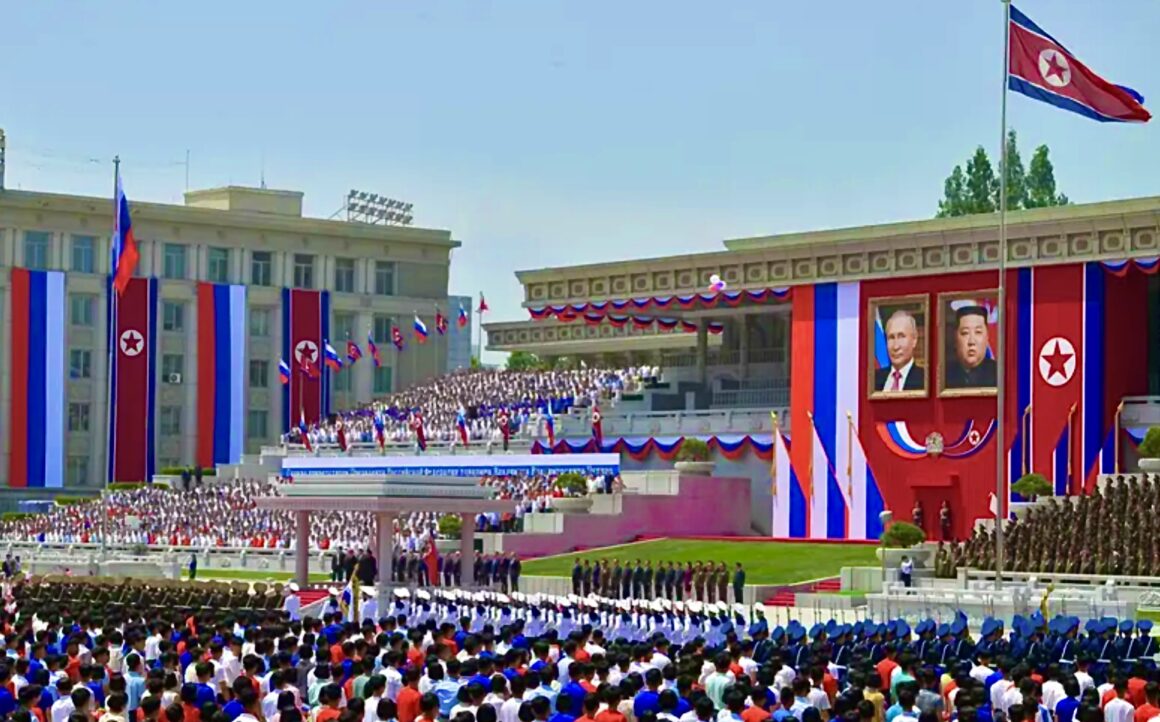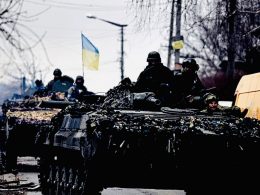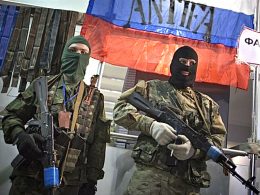China, Russia, the DPRK, Venezuela, Cuba, Hezbollah, Hamas, Ansarallah; these and the other forces which have succeeded in resisting the empire represent examples to learn from. This was already true prior to December 7, but after that day of defeat, it’s more urgent than ever that we learn from from these anti-imperialist victors. That we look at why exactly they’ve been able to beat back the enemy, and in many cases continue to actively weaken the enemy. The fall of Syria, and the expansion of the Palestinian genocide that this will bring about, is the ultimate clarifying moment. It’s now being revealed to us, through a catastrophe that will likely take hundreds of thousands of more lives, which strategies do and don’t work for preventing the enemy’s attacks. And if we internalize the lessons from this, the task of defeating the hegemon will be made easier, even amid all the human loss that will come from this defeat.
It’s important that we recognize Russia as one of our solid allies, because despite the narratives about Russia having sold out Syria, the evidence is to the contrary. For such a scenario to be plausible, Russia would need to hold a strategic view that all signs show it doesn’t hold; it would need to believe that it could get Washington to agree to a serious deal in Ukraine, where the U.S. makes major compromises. Anyone who has experience with the U.S. knows it would never do this. That’s why Russia has remained committed to fighting against NATO and the Banderite regime: the only way to neutralize the threat from the west is by making no compromises, because anything conciliatory from Russia will be seen as a weakness.
We know Russia won’t abandon the goal of subduing the hegemon, because for years now, the political climate inside Russia has simply not been hospitable for those who seek appeasement. Since Kiev tried to do to Donbass what the Zionists did to Gaza, Putin has known he can’t remain passive; if he were to falter, he would lose support from his people, and his government would be replaced with a leadership that’s willing to complete the war. This is not Putin’s war, but the Russian people’s war, and that’s why Russia won’t accept Trump’s “frozen conflict” proposal: the will of the Russian masses is to commit to the anti-fascist cause. And because the masses are the force that’s driving Russia, its only possible future trajectory is towards fully driving a stake into the empire’s heart.
Iran’s masses have been valiantly trying to turn their government in the same direction, but for the time being, the country’s liberal reformers maintain a great deal of influence. And this is one of the reasons why Syria fell. The inaction from Iran’s reformers wasn’t the direct cause of Assad’s defeat; the crucial development was when Assad’s own officials literally sold out their country, and let the terrorists win. It was a combination of internal betrayals, and broader passivity from Iran’s reformers, that led to this outcome. It’s not that Iran sold out Syria, because Iran hasn’t gained anything from this; rather it’s that liberal actors who hope for an eventual U.S. reward have been obstructing the resistance effort. And because Syria also had unreliable leadership elements, the jihadists and Zionists won. As Scott Ritter has concluded: “Netanyahu fought harder to preserve his personal political legacy than the Axis of Resistance did to defend Palestine. And now Israel has won. And Palestine has lost.”
Where this leads next largely depends on the power struggle within Iran. The reformers haven’t been able to stop Khamenei’s faction from gaining the materials for a nuclear weapon. But they have stopped Khamenei from retaliating for the Zionist entity’s strike on a nuclear facility in October; they’ve contributed to the present Syria disaster; and as long as there’s lack of sufficient will to build a nuke, the weapon won’t actually be built. Unless Iran goes through with constructing nuclear weapons, we can expect the genocidal campaign to advance without restraint.
The lessons from this are not just that we should continue to support Russia, or that we should help expose the liberals who seek to undermine the resistance. It’s that we have to put class struggle at the forefront of all our anti-imperialist efforts. Because what’s the reason behind why Russia took the path of committed resistance, while Iran became hesistant and opportunists gained a foothold within Syria? What was the decisive factor that made Russia avoid the path of surrender? It was class struggle. It was the presence of a sufficiently organized proletariat, which gained the leverage to force the Russian state into taking action. Demonstrations against the reformer faction have been happening within Iran, but the proletariat hasn’t gathered enough strength to overcome the country’s pro-appeasement national bourgeoisie.
The answer to these problems is not to abandon our support for multipolarity. When one properly understands what multipolarity means, they see that multipolarity isn’t something which can be willed in or out of existence, and that it can’t even be undone by an event as huge as Syria’s defeat. Multipolarity is simply a stage within a historical process; one that’s already our reality, and that will continue to be a our reality. This is because the empire’s destabilization efforts have a limit to how far they can go, and most other fronts in our geopolitical conflict are not as vulnerable as Syria turned out to be.
Realistically, the hegemon can’t bring enough chaos to reverse its decline. China will continue building up its economy, along with the economies of a growing number of Global South countries, and Russia will remain an asset in this effort. These are the advantages that the anti-imperialist cause is sure not to lose; the loss in Syria is not going to reverse the larger transition away from unipolarity. Now we must build a multipolar movement whose basis is in the proletarian struggle, and that therefore is truly capable of winning.
Marxist-Leninists need to respond to the Syria catastrophe by pivoting in our practice; by choosing to emphasize communism, and communism’s ideas of proletarian struggle, more than we already do. There can be no ambiguity about what we seek to accomplish. Our goals are the victory of the working class, and the guarantee that the working class won’t see its victory reversed. When a proletarian revolution remains internally well-protected, like is the case in countries such as China and the DPRK, the imperialists can’t touch them. There are non-ML revolutionary governments, like the ones in Venezuela and Nicaragua, that have also been able to sustain themselves; but they share the characteristic of being deeply connected to class struggle.
There’s a reason why Iran’s national bourgeoisie has managed to do so much damage to the revolution, while in these other countries there’s not an equivalent crisis: in those countries, the balance of forces has become decidedly in the proletariat’s favor. Class struggle strengthens any anti-imperialist project; it helps disempower the opportunist elements, which gained leverage within both Iran and Syria.
You don’t need to identify as a Marxist-Leninist to advance the class struggle, or the anti-imperialist cause; but Marxism-Leninism’s ideas are crucial to this cause. And if you are a Marxist-Leninist, this is a critical moment to inject your ideas into the anti-imperialist movement. This has been important during every moment throughout the struggle, but Syria’s fall is a sign that communists must redouble our efforts. The only path forward is one that runs through the proletarian struggle; anti-imperialists can’t win without the workers being the driving force. We have to orient the fight against the hegemon around the proletariat, and around its interests.
————————————————————————
If you appreciate my work, I hope you become a one-time or regular donor to my Patreon account. Like most of us, I’m feeling the economic pressures amid late-stage capitalism, and I need money to keep fighting for a new system that works for all of us. Go to my Patreon here.
To keep this platform effective amid the censorship against dissenting voices, join my Telegram channel.








